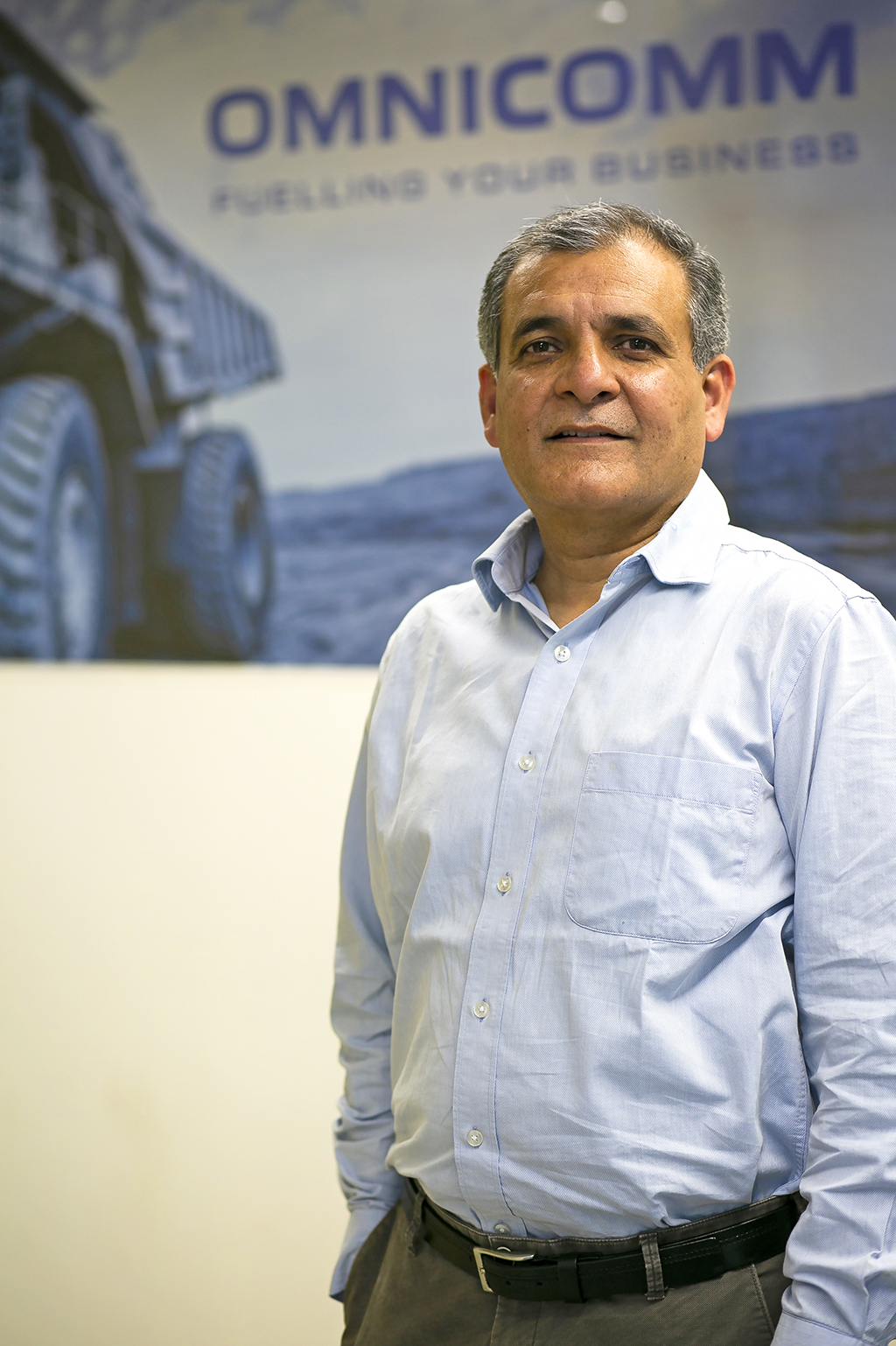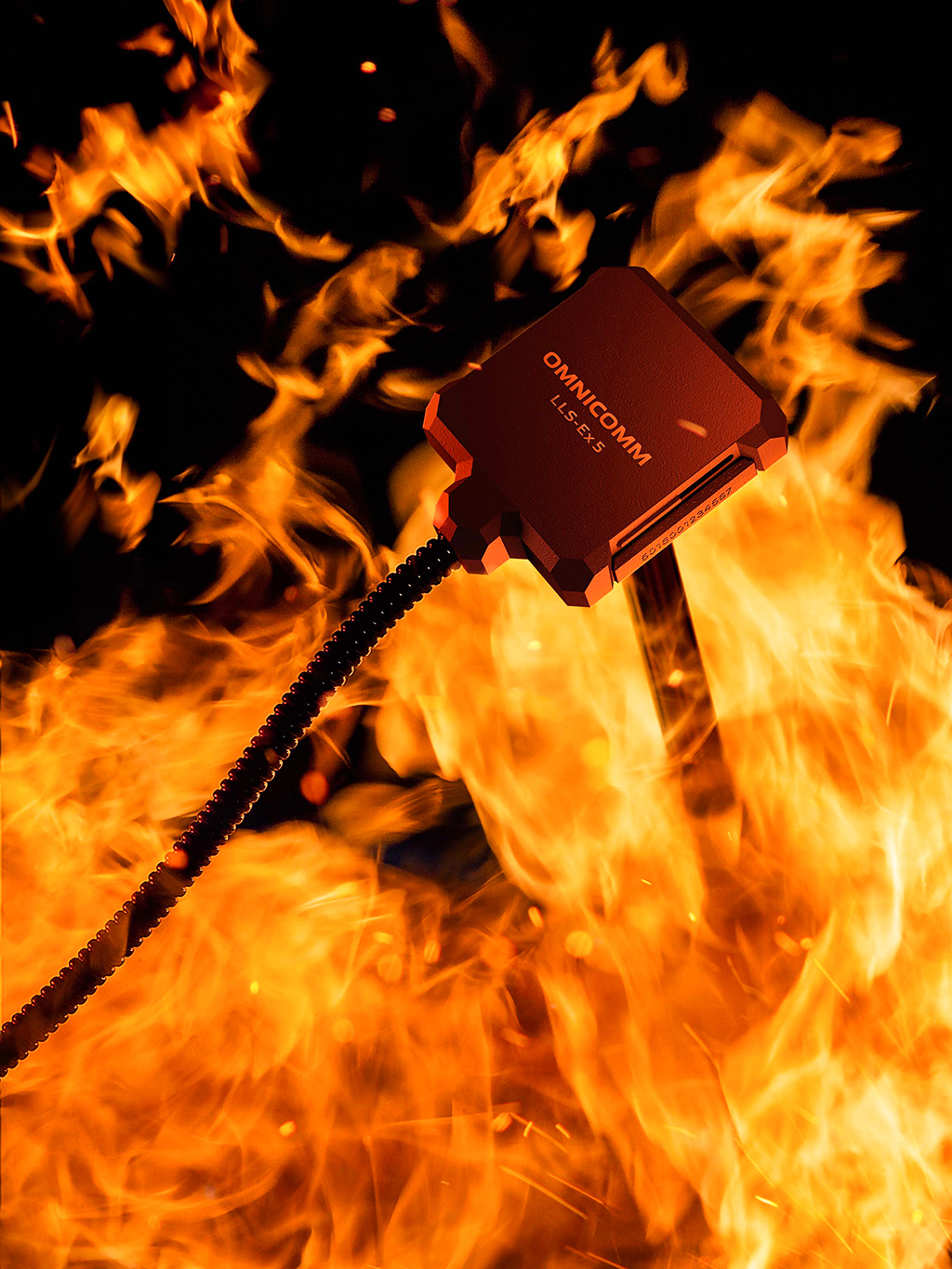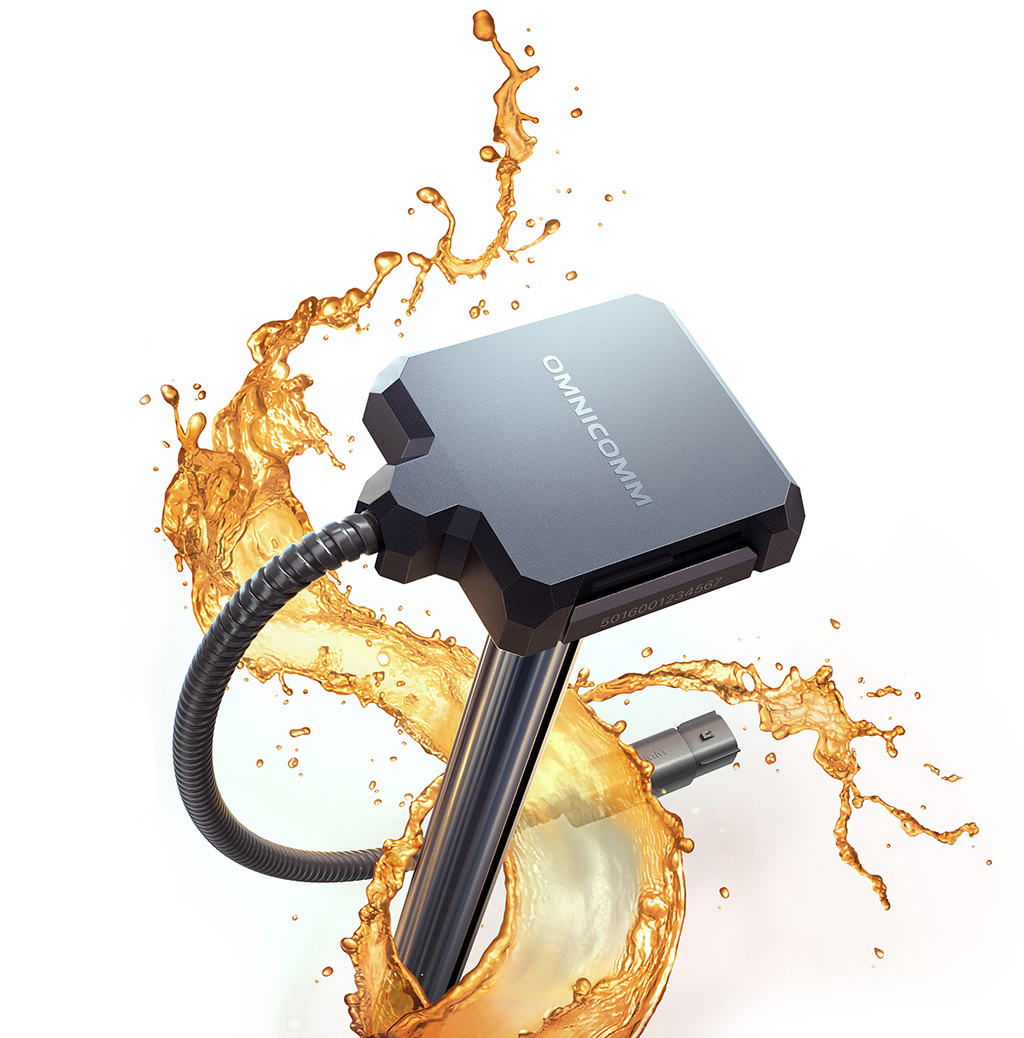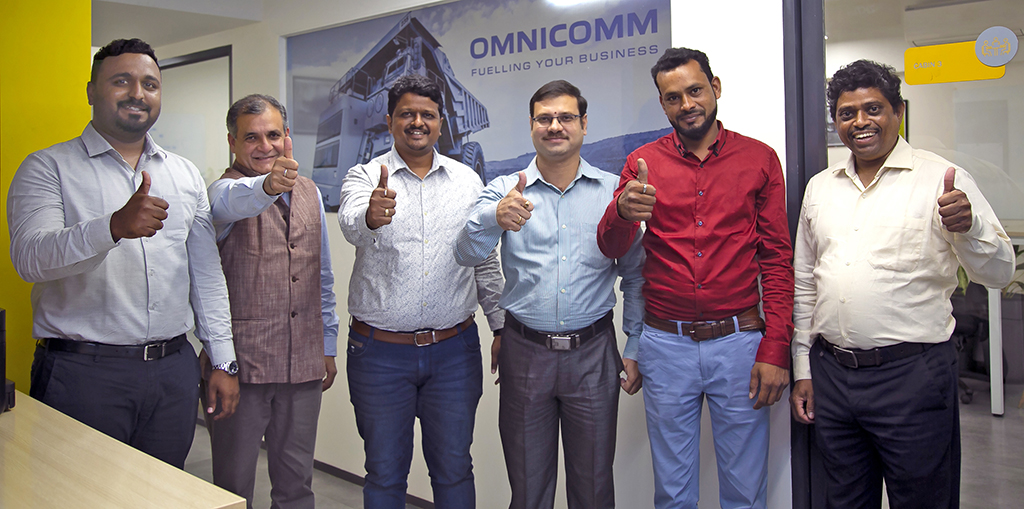
Providing state-of-the-art vehicle telematics and fuel management solutions in over 113 countries, Omnicomm’s products are gracing underhood of over 1 million vehicles across the globe. Boris Pankov, Founder & CEO, Omnicomm, and Mohit Mehrotra, Managing Director and Business Head, Omnicomm India and South Asia, talk to N. Balasubramanian and Sarada Vishnubhatla and share their aggressive plans for the Indian market, and reveal their clear strategy to woo new and retain existing robust customer network through innovative products

About 25 years ago, Boris Pankov dreamt of establishing a company that can help economies reduce fuel consumption and save money. Today, this electronics engineer, who is also a developer at heart, has achieved exactly that and more. Not only is Omnicomm the market leader in the vehicle telematics in Russia, it also commands presence in more than 113 countries, in 11 different industries, and has 3,000 partners worldwide. The name Omnicomm is synonymous with complete IoT-based fleet management solutions supported by unique fuel data processing algorithms. The discerning customers swear by Omnicomm’s fuel-level data recordings which consistently deliver an accuracy of more than 99.5%.
Omnicomm has bagged several global awards that validate its market-leading position. Some of the most prestigious ones include the Best IoT Solution of the Year (Global Logistics Excellence Award co-presented by Tata Strategic Management Group & CNBC), 2019 Russian & CIS Growth, Innovation & Leadership Frost Radar Award by Frost & Sullivan and 2018 Top 10 FMS company in APAC by APAC CIO Outlook.

About 6 years ago, Omnicomm set foot in India when they equipped the 2,500-strong fleet of a logistics start-up with their fuel management system. In 2017, Omnicomm set up Fuel Monitoring Technologies as a subsidiary and launched the company’s flagship LLS family of fuel sensors.
Excerpts from the interview:
What was Omnicomm’s primary aim of entering India? How has the market received the brand and the solutions over the years?
Boris Pankov: India is the fastest growing economy in the world. And for any company anywhere, fuel cost makes up roughly 50% of its operational expenses. With fuel costs increasing, it is crucial for economies, including India, to make it work efficiently. Also, we are happy to replicate our Russian success story here in India too.
Mohit Mehrotra: India is embracing multiple digital technologies today, and Omnicomm provides a significant value-driven digitization service. Our Fuel Analytics solution helps customers monitor and measure fuel most efficiently and our customers realize this and have benefitted from it too in terms of ROIs.
Where are Omnicomm’s products manufactured and how do you cater to the Indian market? Are there plans in the offing to set up a manufacturing site in India in the near future?
Boris: We manufacture our products in Russia for easier checks on the production processes and our R&D department is in the vicinity. Our products come with a 5-year warranty period to the international market and now we are delighted to announce a lifetime warranty for all LLS4 and LLS5 fuel sensors in India from 1st November this year. We are thinking of making India as a hub in this region to help us penetrate into other countries such as Malaysia, Thailand and in the Middle East. Further, we would like for the volumes to increase in India before establishing our product line here.

Mohit: Omnicomm sources products from major global chip suppliers. We adhere to the highest quality of manufacturing through 6 stages of quality control and ISO 9001:2015 manufacturing and supply chain process. Our products are distributed from our global distribution center located at Narva, Estonia in the EU.
How does Omnicomm differentiate its products from competition?
Boris: Our primary USP is that we are the inventors of this technology. Majority of the global markets use our technology and our products are highly reliable, offer accurate and relevant data. We may not be the lowest priced in the market but the price is offset by the value and service we provide. In terms of the total cost of ownership, our products work out the cheapest. We have about 50 patents pending for LLS 5. Our software – in terms of analytics, calculation of fuel and efficiency – is one of our key differentiators in the market. Omnicomm’s fuel monitoring solution monitors CO2 emissions from every truck, providing a metric that can be improved by fleet operators.
Mohit: Omnicomm has been the pioneer and the most prolific innovator in our product categories. We were the first in the late 90s to develop capacitive fuel sensors in the automotive sector and we developed the fuel monitoring protocols. Today, we have installed more than 1 million sensors globally. And this has happened through 5 generations of sensors where each generation is equipped with newer innovations. The latest – LLS 5 or Liquid Level Sensor 5 – has adaptive algorithms which ensure that even if the fuel is adulterated, the sensor auto-adapts and provides an unprecedented 99.5% accuracy. Our key strengths are our people and processes. Our partner network is vast and we provide them with technical training so that they can support our customers. We have a well-established global support center that works from Moscow, Estonia, Brazil, and Bangalore. When one buys Omnicomm product, they are buying hardware which is backed by software, service, high quality technical support and customer adoption service. Also, the customer is offered a 90-day golden period which allows him full access to our support desk. We compute their fuel consumption and show them the amount they save on every single truck they own.

What all geographies are you strong in currently? And is it safe to say that Omnicomm has aggressive plans for India?
Boris: We have a stronghold in Eastern Europe, Latin American countries, Brazil, Africa and India. India is our main focus currently. Indian engineers are highly talented and can help us communicate with countries around India, lend technical support and share positive experiences with them.
What is the product range that you offer in India currently and what all vehicle segments do you cater to? What is the business share like from each segment?
Boris: Besides the truck segment, we are active in construction, mining and agricultural segments too. Wherever there is an IC engine, our sensors can be used. We offer a complete solution – software, terminals and sensors. Product wise, we offer:
• LLS 4, and LLS 5 capacitive fuel level sensors that are precise despite the temperature. All LLS models have the highest possible ingress protection rating (IP69K), allowing high-pressure hot-water washes. Explosion-proof LLS 5 EX that can be deployed in potentially hazardous situations.
• On-board GPS terminals that offer autonomous operations.
• Omnicomm Online – a cloud-based fleet management application – which converts data from the sensors into actionable reports. Our solution is flexible allowing third-party integration.

Mohit: The Indian trucking market size is between 8 and 10 million. Of this, almost 45% is heavy to medium-duty trucks translating to about 4 million trucks. Of these about 20% are connected via onboard telematics. When we entered the Indian market for fuel sensors, the size of the installed base of sensors was less than 10,000 sensors. But today there are over 100,000 trucks installed with fuel sensors. We enjoy over half the market share in India. In the construction segment, India has about a million construction vehicles and we have been catering to the segment since 2019. Omnicomm serves several large enterprises in this segment who are cost conscious. Fuel is a huge component of their operating expenditure, and hard to monitor. These projects tend to be in remote locations and the assets do not move much. Hence, the accuracy of fuel reading is important. One niche and small segment in India is that of cranes and heavy lifts which is dominated by 5-7 players, of which 4 are our clients. These assets consume huge amounts of diesel and we help the owner sitting off-shore know the fuel consumption on his machines. The National Highway Authority of India (NHAI) has built about over 13,000 km of highways last year involving top 10 construction companies. Of these, 5 are our customers wherein our product is installed in over 60% of their assets.
Does Omnicomm work with OEMs globally and in India?
Boris: We work with OEMs globally that own popular brands in tractors, trucks and construction equipment. It is notable that some of them are winners in truck racing too because only our devices can survive the harsh demands of racing. Generally, all OEMs establish their own telematics solution to collect information on truck performance at customer site. But in reality, customers have different trucks from different manufacturers and they need to assimilate the data. And we are preparing new software to retrieve data from the OEMs to track and trace to offer data analytics to the customer. We hope to implement this in the first half of 2022. OEMs give us continuous business and help us meet newer customers, and in turn, we supply them not only sensors but our technology too.
How many channel partners do you have globally and also in India?
Boris: We have more than 3,000 partners globally. We work with huge amount of data, and we teach our partners how to work with it and in turn, they share the knowledge with the final customer.
Mohit: In 2015, we began with a single partner in India; today we have nearly 100 partners and the number keep growing. We are implementing a formal certification training program for our partners and a training center is coming up in Bangalore. Till date, we have skilled more than 300 technicians, in alignment with central government’s skilling mission. A matter of pride for us is that a team from India is undertaking our first project in the Comoros Islands in October to install our sensors and train the partner which is the largest oil marketing company there.

How has the journey been till now for Omnicomm in India and what are your expectations going forward?
Boris: We have done well in India thanks to our team. Currently, India contributes about 10% to our global business revenue. We would like to be more aggressive in the near future to earn a better market share and make fuel saving a national mission.
Mohit: The Indian market is starting to aggregate and some of the large aggregators in the telematics segment are our partners. One of our objectives is to cater to big chunks of business from these aggregated fleet management service providers while continuing to work with small and medium industry. We are soon launching our new software which will offer business analytics and value-added services such as fuel analytics and driver safety. With more than 5 years of concerted focus on precision fuel analytics, large and medium fleet customers now know that they save money with Omnicomm fuel and fleet management solution. And that spells deep trust in our brand, product, software and services. Boris: Our products enable our clients’ business to move up the ladder or in other cases, they are able to catch a ‘second wind’. And, working with us is already a competitive advantage in itself.